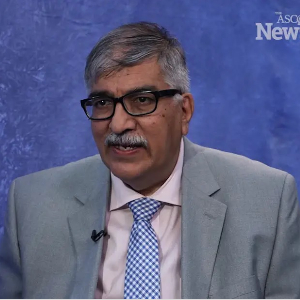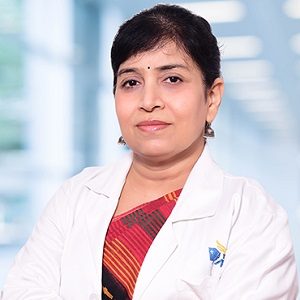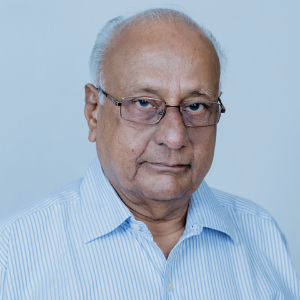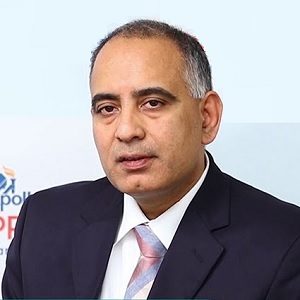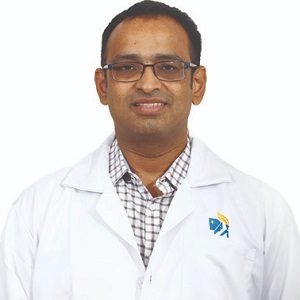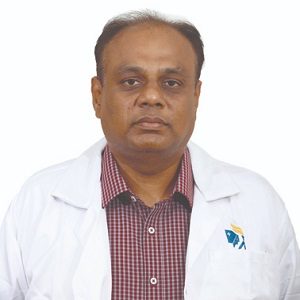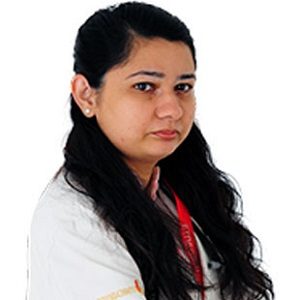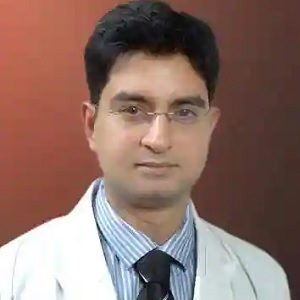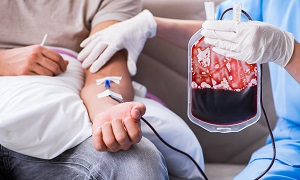Best Anemia Treatment Doctors (Hematololgists) in India
- Hemato Oncologist & BMT Specialist, New Delhi, India
- Over 10 years’ experience
Profile Highlights:
- Dr. Shishir Seth is a Hemato Oncologist and Bone Marrow Transplant specialist currently practicing at Indraprastha Apollo Hospital, New Delhi
- He has performed over 200 hematopoietic stem cell transplants successfully of which 40 included allogenic haploidentical transplants and antigen mismatch transplants. He has also performed 300 induction therapies for acute leukemia.
- Dr. Shishir Seth is an expert hematologist and hemato oncologist with an interest in the management and treatment of different blood diseases (benign and malignant).
- With an experience of 10+ years in Hematology and BMT, Dr. Seth has achieved several feats in his career that have gained him immense popularity and recognition.
- Dr. Shishir Seth is involved with research work as well and has numerous publications in his name in national and international journals.
- Director and Head Medical Oncology/Hematology, Gurugram, India
- Over 40 years’ experience
Profile Highlights:
- Dr. Rakesh Chopra is a well-known Medical Oncologist with national and international repute as one of the best in the treatment of all types of blood cancers including leukemia, lymphoma, multiple myeloma, and bone marrow transplant.
- His specialization lies in blood cancer and also provides treatment for solid cancers of the breasts, lungs, prostate, colon, and GI.
- Pediatric Hemato Oncologist, New Delhi, India
- Over 25 years’ experience
Profile Highlights:
- Dr. Amita Mahajan is an established pediatric oncologist in India. She has assisted patients in recovering from health checkups, nutrition consultation for children, Bone Marrow Transplant, diabetes, and childhood injuries.
- Since Dr. Mahajan has expertise in Adolescent Medicine besides Pediatrics Oncology and Hematology, she also offers treatment for Menstrual Disorders in Adolescent Girls.
- Medical Oncologist, Chennai, India
- Over 40 years’ experience
Profile Highlights:
- Dr. Bellarmine Vincent Lawrence is a well-known Medical Oncologist in South India with a specialization in the treatment of breast cancers.
- He provides overall both pre and post-operative treatment of breast cancer that includes diagnostic, therapeutic as well as palliative care.
- He also provides services for other types of cancers including blood cancer and does procedures like Chemotherapy for the treatment and biopsies for the detection of cancer.
- Medical Oncologist and BMT Specialist, Chennai, India
- Over 25 years’ experience
Profile Highlights:
- Dr. T. Raja is a Medical Oncologist from the Tamil Nadu state with 25 years of know-how in this field.
- He has proficiency in Cancer Screening, Chemotherapy, PICC Line Insertion, Bone Marrow Transplantation, Stem Cell Transplantation, Pap collection, lymphoma, Renal Cell Cancer management, and Head and Neck Tumor.
- Dr. Raja was the Principal Investigator for several clinical studies, a published author for journals, and a teacher.
- Hematologist, Chennai, India
- Over 29 years’ experience
Profile Highlights:
- Dr. Prabu P is one of the top hematologists in Tamil Nadu with an experience of more than 15+ years in the field.
- He gained most of his experience working in the United Kingdom and now practices at Apollo Hospital, Chennai.
- Dr. Prabu acquired experience in general and malignant pediatric hematology while working in the pediatric hematology unit of St James University Hospital, Leeds.
- Hematologist, Chennai, India
- Over 25 years’ experience
Profile Highlights:
- Dr. Srikanth M is one of the top Hematologists in Chennai with an experience of 25 years in the field.
- He assists patients with an accurate diagnosis, consultation, and treatment for Hemophilia, Leukemia, Myeloma, Thalassemia, Lymphoma, and other blood diseases. The doctor also offers Bone Marrow Transplant and Chelation Therapy, etc.
- Dr. Srikanth M has completed MRCP from the Royal College of Physicians, London to enhance his skills and received a fellowship from Royal Marsden Hospital.
- Hematologist, Gurugram, India
- Over 10 years’ experience
Profile Highlights:
- After years of practice, Dr. Neha Rastogi has unmatched expertise in diagnosing and treating different kinds of disorders such as anemia, thalassemia, hemophilia, solid tumors, and blood cancers.
- Besides all this, she has the ability to diagnose and treat various primary immunodeficiency disorders as well.
- Being interested in cellular and immunotherapy, Dr. Neha Rastogi works with the agenda of transforming the face of cancer disorders and transplantation.
- Hemato Oncologist, Gurugram, India
- Over 20 years’ experience
Profile Highlights:
- Dr. Nitin Sood is the Director of the Department of Hemato Oncology and Bone Marrow Transplant at Medanta-The Medicity, Gurugram.
- He is an expert in treating patients suffering from lymphoma, myeloma, bleeding and clotting disorders, thalassemia, and aplastic anemia.
Best Anemia Treatment Hospitals in India
Rela Hospital, Chennai
- City: Chennai, India
Hospital Highlights:
- RIMC is a multi-specialty hospital in a sprawling area of 36 acres located in Chromepet, Chennai, Tamil Nadu, India.
- The facility has 450 beds including 130 critical care beds, 9 operating rooms, modern reference laboratories and radiology services, and is conveniently located near road, rail and air transportation.
- RIMC is led and managed by world-renowned physicians committed to healthcare.
- RIMC offers the broadest range of clinical care, education, and research. The hospital offers state-of-the-art technology and modern treatment facilities designed to provide health care at an affordable cost.
- Rela Institute is driven by patient needs, comfort and confidence.
CARE Hospitals, Hyderabad
- City: Hyderabad, India
Hospital Highlights:
- CARE Hospitals were established in the year 2000, by CARE Group.
- The multispecialty hospital has 435 beds, including 120 critical care beds, with an annual inflow of 180000 outpatients and 16,000 in-patients.
- The hospital provides specialty medical services in Cardiology, Cardiothoracic Surgery, Pediatric Cardiology, Pediatric Cardiothoracic Surgery, Neurology, Neurosurgery, Nephrology, and Urology.
- The hospital has the first dual source, 128 slice CT scanner (for high precision cardiac imaging) – the first of its kind in south India.
- The hospital offers a wide range of accommodation facilities for the convenience of its varied patient base, ranging from general wards to super deluxe rooms.
Fortis Hiranandani Hospital, Mumbai
- City: Mumbai, India
Hospital Highlights:
- Fortis Hiranandani hospital was established in 2007.
- The hospital is an advanced tertiary care, multi-specialty hospital equipped with 149 beds.
- The hospital is equipped with a super ICU to provide emergency medical care to critically ill patients.
- The hospital is NABH accredited.
- The critical care facility in the hospital is augmented with the state-of-the-art facilities that facilitate speedier diagnosis and efficient monitoring.
- The hospital provides specialty medical services in cardiology, orthopedic science, pediatric science, neurology, diabetic care, urology, nephrology, ENT, obstetrics, gynecology, cosmetic surgery, bariatric surgery, neuro and spine care.
Fortis Hospital, Anandpur, Kolkata
- City: Kolkata, India
Hospital Highlights:
- Fortis Hospital, Anandapur, Kolkata is a world-class super-speciality equipped with the latest technologies in the medical world.
- The hospital is NABH accredited.
- This state-of-the-art facility specializes in cardiology and cardiac surgery, urology, nephrology, neurosciences, orthopaedics, digestive care, emergency care and critical care.
- The hospital, governed by integrated Building Management System (IBMS), has a pneumatic chute system, for quick vertical and horizontal transportation between floors, facilitating speedy transfer of patient specimens, documents, reports, and medicines to the concerned departments.
- The hospital also has a nephrology department with over 28 advanced dialysis units.
Fortis Hospital, Malar, Chennai
- City: Chennai, India
Hospital Highlights:
- Fortis Malar was established in 1992 and was formerly known as Malar Hospital.
- The hospital specializes in cutting-edge medical technology and dedicated patient care services.
- The hospital is multi-specialty, tertiary care facility with 180 beds.
- The hospital offers comprehensive medical care in specialties such as cardiology, cardio-thoracic surgery, neurology, neurosurgery, orthopedics, nephrology, gynecology, gastroenterology, urology, pediatrics, and diabetes.
Gleneagles Global Hospital, Parel, Mumbai
- City: Mumbai, India
Hospital Highlights:
- Gleneagles Global Hospital The 450-bed facility comprises of 17-stories, housing state-of-the-art infrastructure, and advanced medical care facilities.
- The hospital offers end-to-end clinical, surgical, and diagnostic services. It is equipped with a team of eminent medical professionals aided by qualified nurses and medical staff
- The Hospital offers advanced Endoscopic procedures, Hepatobiliary and Liver Surgeries, Surgical and Medical Gastroenterology, Bariatric Surgery, and Robotic surgery.
- The hospital is a center of excellence for Orthopedics, Joint Replacement, Knee Replacement, and Hip Replacement surgery.
Jaypee Hospital, Noida
- City: Noida, India
Hospital Highlights:
- Jaypee Hospital is the flagship hospital of the Jaypee Group.
- This hospital has commissioned 525 beds in the first phase and has been planned and designed as a 1200 bedded multi-specialty facility.
- It holds the accreditation of the NABH and NABL.
- The hospital has state-of-the-art infrastructure equipped with the latest technologies and modern equipment like 64 Slice PET CT, Dual Head 6 Slice SPECT CT, Gamma Camera, and Da Vinci Robotic Surgery for comprehensive robotic surgical solutions.
- It has special Centers dedicated to the major specialties to provide hassle-free and high-quality clinical care.
S L Raheja Hospital, Mahim, Mumbai
- City: Mumbai, India
Hospital Highlights:
- SL Raheja hospital is a 140-bed multi-specialty tertiary care hospital that is being managed by Fortis Healthcare Ltd.
- The hospital is a benchmark in healthcare and medical facilities in the neighborhood of Mahim & the western suburbs.
- L.Raheja Hospital, Mahim has one of the most effective ICU and Casualty care services.
- The hospital provides specialty medical services in Cardiology, Oncology, Neurology, Orthopedics, Mother & Child Care, and in Diabetes.
Narayana Superspeciality Hospital, Gurugram
- City: Gurugram, India
Hospital Highlights:
- Situated near DLF Cyber City, Gurugram, Narayana Superspecialty Hospital is one of the top medical facilities in the Delhi NCR region, catering to the needs of the people. Known for its commitment to quality medical care and patient service, the hospital is a state-of-the-art facility with planned and well-equipped sections, which includes a spacious OPD area as well as comfortable patient rooms.
- It is the closest super-specialty hospital from Indira Gandhi International Airport towards Gurugram, and also the nearest super specialty hospital from DLF Cyber City. It is also close to major residential areas in Gurugram.
- It is part of the renowned Narayana Health Group. Established in 2000, by Dr. Devi Shetty, a renowned cardiac surgeon, it has grown to be one fo India’s leading healthcare groups.
Sir Ganga Ram Hospital, New Delhi
- City: New Delhi, India
Hospital Highlights:
- Sir Ganga Ram Hospital, New Delhi is known to provide the latest medical procedures with the latest technology in all of its units.
- The hospital has a team of reputed doctors, nurses, and healthcare professionals that ensure that patients receive quality care at affordable costs.
- Staffed with a team of highly qualified doctors, dedicated nurses, and paramedical and non-medical staff, the hospital aims to lead in healthcare delivery, medical education, training, and research.
- As per the vision of the founder, the hospital also provides free treatment to the economically weaker sections of society.
- Sir Ganga Ram Hospital also provides training to young doctors under the Diplomate in National Board(DNB) program. The DNB program at the hospital was started in 1984 and it is known for currently running the maximum number of DNB specialties in the country. It also has the distinction of having the first bone bank in India.
What is Anemia?
Anemia is a common medical condition in which there is a deficit of Red Blood Cells for carrying oxygen to the various organs of the body. People who suffer from this condition have a low hemoglobin level which is the main protein of the red blood cells. One may feel weak & tired if he/she is suffering from the condition. This is because your body cannot supply the organs with what they need to work.
Anemia is the most common blood condition in many countries that most of the women & children suffer from.
There is a high demand for blood supply in women during their gestation period. Hence, women who have deficient red blood cells suffer from iron deficiency anemia.
Causes of Anemia
There are many causes of the condition and vary from person to person. Let’s have a look at some of the most common causes of anemia.
- Due to decreased RBCs- When the body of a person isn’t able to create the required number of RBCs, the person is more likely to suffer from anemia. This is because your body lacks the essential nutrients, vitamins and minerals and in turn, the RBCs don’t function well.
- Due to blood loss- Many people don’t realize the loss of blood cells through bleeding. Such bleeding takes place over a long duration of time slowly. Non-steroidal anti-inflammatory drugs and many gastrointestinal conditions may cause blood loss in the body leading to anemia. Surgery and trauma may also induce increased blood loss in the body.
- Due to faulty RBC production- The body might not produce red blood cells because of stem cell problems and bone marrow problems. Stem cells are special cells that develop into various cell types. They can vary from brain cells to muscle cells. They have the ability to fix damaged tissues of the body and are potential cells for the treatment of various diseases. The bone marrow is a viscous tissue that fills the bones from inside. The types of bone marrow are red bone marrow and yellow bone marrow. Red bone marrow is responsible for producing the blood cells while yellow born marrow helps to store fat. When there is a deficiency of stem cells in the marrow or they malfunction or other cells replace them, then there is a faulty production of RBCs in the body. Hence, the chances of having anemia increases.
- Due to the destruction of RBCs- A person may suffer from hemolytic anemia if the red blood cells in his body are fragile and cannot travel throughout the body, resulting in bursting of RBCs. An attack on the immune system or enlarged spleen may also cause hemolytic anemia.
Symptoms of Anemia
Following are the common symptoms associated with the condition:
- Anemic patients appear pale and cold.
- Anemic patients suffer from fatigue and weakness. Most of the time they feel dizzy and tired.
- Anemics suffer from lightheadedness. Such people encounter trouble in concentrating on anything.
- You may also find some oral symptoms in anemic people. They have inflammation in their tongue which results in the red, painful, smooth, and glossy tongue.
- Severe symptoms of anemia include fainting. Unusual heartbeat and headache are common in anemics.
- Children and teenagers suffer from growth problems. They have pain in their bones and joints.
- On physical examination, the symptoms include low or high blood pressure, an increase in the heart rate, jaundice and heart murmurs. Sometimes, the person suffers a heart attack.
- Chest pain, brittle nails, and shortness of breath are some other symptoms found in anemic patients.
Types of Anemia
The distinct types of anemia are:
- Aplastic Anemia– When your body doesn’t produce adequate red blood cells then there are more chances of aplastic anemia. Autoimmune diseases, exposure to toxic chemicals and infections may induce aplastic anemia.
- Sickle Cell Anemia– It is a hemolytic anemia that a person inherits from his parents. A defective form of hemoglobin causes this condition as the red blood cells take the shape of a sickle. The cells die prematurely while leads to a shortage of red blood cells.
- Iron Deficiency Anemia- The bone marrow makes hemoglobin with the help of iron. Your body cannot make hemoglobin for the red blood cells with a deficiency of iron. The deficiency of iron in the body causes iron-deficiency anemia.
- Vitamin Deficiency Anemia- Human body needs vitamins and minerals for the healthy production of the red blood cells. If your body lacks essential vitamins and nutrients, then the production of the red blood cells decreases leading to vitamin deficiency anemia. Another name for vitamin deficiency anemia is pernicious anemia.
- Thalassemia– This is an inherited condition which causes decreased hemoglobin level than normal. Hemoglobin is responsible for the distribution of oxygen to the tissue organs through the red blood cells. The condition leads to anemia, which causes fatigue.
Diagnosis of Anemia
Following are the common diagnostic tests for Anemia:
- A complete blood count test helps to form a diagnosis. CBC measures the hemoglobin, red blood cells and other composition of blood.
- A differential count or blood smear also helps in forming a diagnosis by counting the white blood cells in the blood. These tests help in checking the unusual cells and in checking the shape of the red blood cells.
- The reticulocyte count helps to check for the immature red blood cells in the blood.
Treatment options of Anemia
The treatment options for different types of Anemia are as follows:
Aplastic Anemia
Blood transfusions are the best treatment for aplastic anemia. Blood transfusion helps to boost the number of RBCs in the body. Also if the bone marrow doesn’t have the potential to make healthy RBCs, then bone marrow transplant can help in treating the condition.


